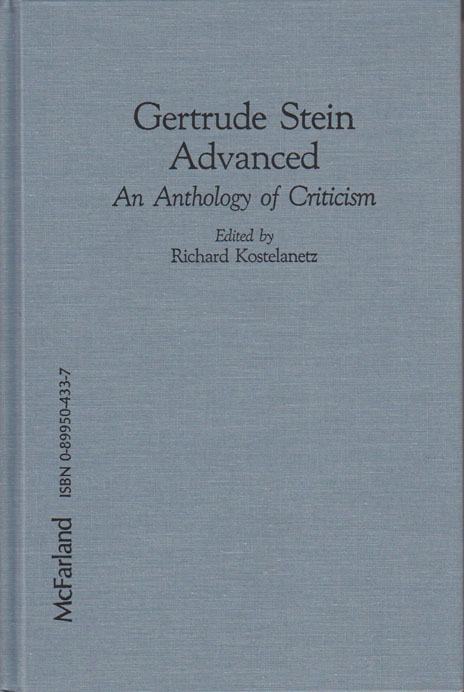Almanacco Letterario Bompiani: Elettronica e letteratura (1961) [Italian]
Filed under magazine | Tags: · automation, computing, digital humanities, humanities computing, language, linguistics, literary theory, literature, philology, robots

An early document from the field of humanities computing, today widely known as digital humanities.
Elettronica e letteratura is the title of the thematic section of an annual literary almanac published by Valentino Bompiani since 1925. The section contains the historical excursions by Rinaldo De Benedetti, Michele Pacifico and Franco Lucentini, and the reports on scientific research sponsored by Olivetti and IBM Italy and conducted by Roberto Busa, Stanislao Valsesia, Carlo Tagliavini, Silvio Ceccato, and Nanni Balestrini.
In one of the articles, the Jesuit priest Roberto Busa, often cited as the pioneer of the field, gives an account of his work on Index Thomisticus, a complete lemmatization of the works of Thomas Aquinas, started in the late 1940s (elsewhere: “During the World War II, between 1941 and 1946, I began to look for machines for the automation of the linguistic analysis of written texts. I found them, in 1949, at IBM in New York City.”).
Included is also a survey about the potential use of computers in literary scholarship (including a response from Pier Paolo Pasolini), entitled “Le due culture” [Two Cultures], and an essay by Umberto Eco.
in Almanacco Letterario Bompiani 1962: Le applicazioni dei calcolatori elettronici alle scienze morali e alla letteratura
Edited by Sergio Morando
Publisher Bompiani, Milan, December 1961
pages 87-188 (of 324)
via P–DPA log
Commentary (Adriano Comai, 1985, in Italian)
PDF (62 MB; large portion of the survey missing, 313ff)
See also an online emulator of Tape Mark 1 and Monoskop page on digital humanities.
Comments (2)Richard Kostelanetz (ed.): Gertrude Stein Advanced: An Anthology of Criticism (1990)
Filed under book | Tags: · language, literary criticism, literary theory, literature, poetry

An anthology of critical essays focusing on the more experimental Stein texts, with Allen Ginsberg, Leonard Bernstein, Donald Sutherland, Dick Higgins, Jackson Mac Low, John Ashbery, Robert Marx, David Antin and others.
Publisher McFarland & Co., Jefferson/NC and London, 1990
ISBN 0899504337
224 pages
via waskleist
Astrid Lorange: How Reading is Written: a brief index to Gertrude Stein (2012)
Filed under thesis | Tags: · literary theory, literature, poetics, poetry, reading, text, writing
This thesis grows out of a set of interlinked questions to do with reading Gertrude Stein: in particular, how to account for the experience of reading a body of work that is largely resistant to conventional and interpretation-based models of literary criticism. What is being read? What is an effective and explanatory way of writing about the reading experience of a Steinian text? And finally, what constitutes a contemporary critical judgment in relation to an experimental poetics such as Stein’s?
For the one who reads Stein, the question of what is being read is a complex one. If Stein is not writing representationally, then there is no singular meaning to be interpreted. Stein, however, is not writing non-representational poetry as a project in itself. Thus, to read Stein’s work exclusively as a meditation on the plurality of meaning makes for a limited discussion of her poetics. Stein did not regard writing to be a representational or metaphorical process: she regarded it as an aspect of experience and a form of thinking. This study argues that Stein’s work elicits a reading approach that is productive of knowledge.
The thesis seeks to answer the question of how to find a way of writing about the reading of Stein by proposing a series of traverses across selective instances, rather than by engaging interpretative textual methods. These trains of thought are inclusive; they are not necessarily congruent or parallel with each other. It is, rather, a grouping of inter-related concerns. The thesis proposes that a network of understandings can accordingly capture something of the non-normative nature of Stein’s writing as well as the multifarious activities of knowing, unknowing, speaking, eating, resembling, noticing, playing, dancing, walking, forgetting, collecting, teasing, joking, proposing, and writing which, among others, constitute Stein’s oeuvre.
Lastly, and in relation to the final question, this thesis attempts a critical response to the reading of Stein. If reading Stein occasions thinking, then the present study is a record of a reader’s account, as well as a theory of reading. The thesis is structurally and conceptually an index to Stein’s poetics. It reads Stein alongside writers and thinkers across discourses of philosophy, science, queer theory, and literary criticism. In particular, it reads with Alfred North Whitehead, William James, Gilles Deleuze, Félix Guattari, Karen Barad, Daniel Tiffany, and Sianne Ngai. It aims to construct an intellectual episteme for Stein’s work—one that connects with contemporary contexts as well as repositioning Stein in her moment of transnational modernism.
Doctor of Philosophy
Faculty of Arts and Social Sciences, University of Technology, Sydney, 2012
212 pages
Publisher
Forthcoming as a book (November 2014)
PDF (an unedited version, different from the one to appear as a book)
Comments (3)
